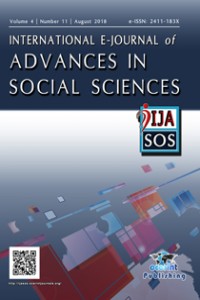Abstract
References
- De Franco, С. Media Power and the Transformation of War, Palgrave 2012 Rid Thomas, War and Media Operations, 2007, Routledge London and New York Shaw, M.2000 г. „Media and Public Sphere without Borders?” New Coverage and Power from Kurdistan to Kosovo”, Decision Making in a Glass House. Mass media, Public Opinion, and American and European Foreign Policy in the 21st Century, B. L. Nacos , R.Y. Shapiro & P. Isernia (eds.) Lanham (MD): Rowman & Littlefield, p.27-40. Shaw, M. 2005 г. The New Western Way of War. Cambridge: Polity, p 75. Strobel, W. P. 1997 г. Late-Breaking Foreign Policy: The News Media ‘s Influence on Peace Operations. Washington DC; United States Institute of Peace Press. Seib, P. 1997 г., Headline Diplomacy: How News Coverage Effects Foreign Policy. Westport (CT): Praeger. Seib P., Beyond The Enemy Lines, 2004 г., Palgrave MacMillan. Trainor, B. „The Military and the Media: A Troubled Embrace ” Parameters 1990 Virilio, P. 2000 The Information Bomb. London Verso
THE STEREOTYPES OF MILITARY TOWARDS JOURNALISTS AND WORK WITH EMBEDDED REPORTERS IN MISSIONS AND OPERATIONS ABROAD
Abstract
The impact of the news technologies development on the newsgathering
business played significant role in setting new standards in the news coverage
and the ethics of media outlets. The deadlines, the channels of communication
and feedback changed so fast in terms of the media scope, focus, and news
cycle.
Accordingly, this process posed certain challenges for the military
leadership regarding operational planning. Now they have to consider the
adequate media coverage while thinking about personal and operational security
of their units on the field. The information is considered to be the fifth
domain of warfare along with earth, sky, sea and space.
Due to that necessity we concluded survey of the attitudes for the
ethical and technical standards of media and military in armed conflicts in
Iraq and Afghanistan, so we can define the scope of cooperation between the two
professional communities. We explored the stereotypes of 60 professionals from
different back ground as media outlets, military expertise and job description,
professionals with experience in missions abroad in conflict zones. The survey
helped us to define the interactions between military and media in conflict zones;
to determine the framework of their cooperation and the expectations they have,
while trying to fulfil their obligations in the field.
Our main task-to target and enlarge the mutual understanding about
the other professional community's standards and operational procedures and to make
media and military working together in a less confrontational manner without
altering the real picture in the battle field. The media operations are
considered to be essential part of the military operations with respect to the
media influence in shaping public opinion. Because the public opinion back home
is crucial to the operational success of the actions undertaken by the government.
The journalists and the military officers consider the need for mutual training
while working in hostile environment and building a standard procedure to be
necessary and periodical in terms of avoiding shortcomings from previous
operations. This is very positive trend for learning the good examples and
unlearning the contra productive ones.
This practice could be very useful in setting standards when a
journalist willingly or unwillingly violates the ground rules while embedded in
a military unit. 80 percent out of the all responders in the survey pointed out
that media and military should have friendly and cooperative attitude towards
each other in the field. Building ground rules procedures that could enable the
working process both in media and military communities is crucial. So is the
military leadership readiness to navigate the media expectations to build
strong and fair reporting of facts and tell realistic, objective and compelling
stories from the battle field.
Keywords
interactions between military and media military expertise journalists standard procedure public opinion mutual understanding cooperation personal and operational security
References
- De Franco, С. Media Power and the Transformation of War, Palgrave 2012 Rid Thomas, War and Media Operations, 2007, Routledge London and New York Shaw, M.2000 г. „Media and Public Sphere without Borders?” New Coverage and Power from Kurdistan to Kosovo”, Decision Making in a Glass House. Mass media, Public Opinion, and American and European Foreign Policy in the 21st Century, B. L. Nacos , R.Y. Shapiro & P. Isernia (eds.) Lanham (MD): Rowman & Littlefield, p.27-40. Shaw, M. 2005 г. The New Western Way of War. Cambridge: Polity, p 75. Strobel, W. P. 1997 г. Late-Breaking Foreign Policy: The News Media ‘s Influence on Peace Operations. Washington DC; United States Institute of Peace Press. Seib, P. 1997 г., Headline Diplomacy: How News Coverage Effects Foreign Policy. Westport (CT): Praeger. Seib P., Beyond The Enemy Lines, 2004 г., Palgrave MacMillan. Trainor, B. „The Military and the Media: A Troubled Embrace ” Parameters 1990 Virilio, P. 2000 The Information Bomb. London Verso
Details
| Primary Language | English |
|---|---|
| Journal Section | Research Article |
| Authors | |
| Publication Date | August 31, 2018 |
| Submission Date | June 3, 2018 |
| Published in Issue | Year 2018 Volume: 4 Issue: 11 |
Contact: ijasosjournal@hotmail.com
The IJASOS Journal's site and its metadata are licensed under CC BY
Published and Sponsored by OCERINT International © 2015- 2025

